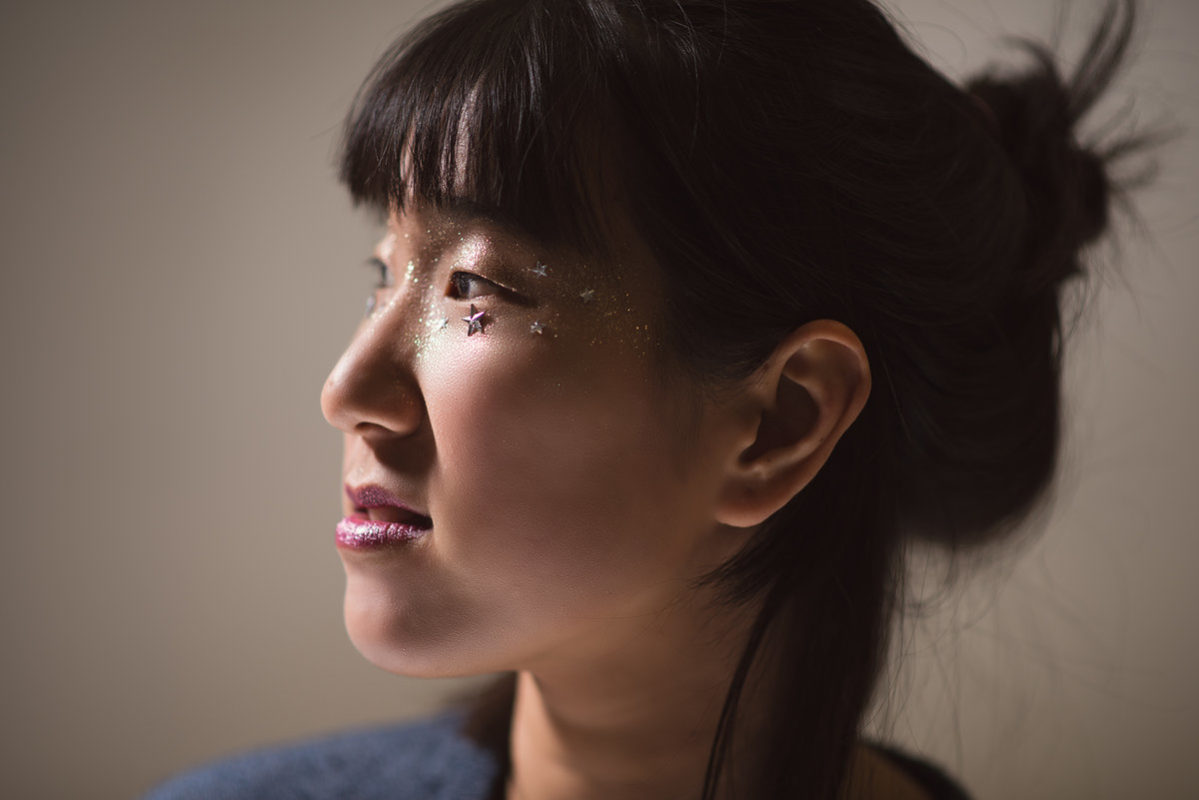Janice Jo Lee brings her song and story to Ottawa

Kitchener’s Janice Jo Lee is bringing her tour to Ottawa this weekend, and is set to take over The Origin Arts & Community Centre. Presented in cooperation with Babely Shades, Lee is an award-winning musician, poet, and theatre performer who pushes boundaries through her art. A self-described hard femme queer radical, Lee insists on using the stage as a platform for interaction with her audiences – an interaction that is often full of witty humour, but also unhindered honesty.
Her folk-roots songs are not only eloquently crafted and beautifully executed, but they are also powerful, critical pieces. Her third album, entitled Ancestor Song, is set to be released in Spring 2017. I had the chance to speak with Janice Jo Lee recently, have a read below.
Don’t miss Lee perform with talented local artist Amanda Lowe at The Origin Arts & Community Centre on Friday night, starting at 8:30pm. More information can be found here.
WHAT ARE YOU HOPING TO SEE AND LEARN, PERSONALLY, AS YOU TRAVEL ACROSS CANADA ON TOUR?
When I’m on tour I am hoping to share my stories with new audiences. Particularly I’m excited to perform to folks who are marginalized by racism, patriarchy, and classism, because I think my songs can be cathartic and healing. I am hoping to meet other artists and activists who are doing the work in their communities, because it inspires me to keep going.
ON YOUR LATEST ALBUM, SING HEY, YOU EXPLORE MANY DIFFERENT GENRES TRACK TO TRACK, YET IT STILL FEELS COHESIVE. IS STRAYING FROM ONE PARTICULAR “SOUND” OR GENRE OF MUSIC IMPORTANT TO YOU? IF SO, WHY?
That’s funny you say that! Because I thought Sing Hey was more cohesive than my first album Drown the Earth when it comes to genre. I would say the sound I aim for is heartfelt, and soul-full. My base is roots, and folk music, with a generous influence from 90s pop and RnB. Placing music in genres is a capitalist tendency I think, to make it convenient to market an artist to an audience. For me I say I am a folk artist because I make music for the people, telling our contemporary stories. The instrumentation is secondary to the music’s purpose.
YOU USE VARIOUS MEDIUMS THROUGH WHICH YOU TELL YOUR STORIES, AND YOUR SONGS AND POEMS ARE POWERFUL ANTI-OPPRESSION PIECES. HOW HAS TRANSFORMING DIFFICULT PERSONAL EXPERIENCES INTO STORIES FOR OTHERS TO HEAR HAD AN IMPACT ON YOU OVER THE YEARS?
Turning my hardships into songs and poems is a really excellent exercise in healing and letting go. My poem “Grasslands” is about the biggest struggle I’ve had with my body, the policing of my body hair. By turning that experience into a piece of comedy, I laugh at it now, and every time I share that story with others, it sits lighter on my chest.
My favourite thing to do right now is to turn my frustration with oppression into anthems for survival. They remind myself and my friends of our fierceness. For example in my song “Here I Am” the chorus says “Gotta spit the truth, gotta be fearless, gotta fight to survive, find joy in my life” which are basically my life goals. In another song “Take Space,” I say “Take that little bit of space you have and let’s make it free” which is about starting where we are and building outward. I use this language of “getting free” which is 100% taken from Dead Prez and their album “Let’s Get Free.”
DO YOU HAVE ANY MEMORIES OR EXPERIENCES THAT YOU CAN RECALL WERE FORMATIVE TO YOUR ARTISTIC PURSUITS? PERHAPS SOMETHING FROM YOUR YOUTH THAT HAS TRAVELED WITH YOU?
I remember in my youth, sitting in the back of the car and hearing Alicia Key’s “Fallin” on the radio and my world stopped. I had been listening to mostly korean and american pop music my whole life, and this simple two chord blues song struck me in my soul. I remember thinking “What is this music?”
I always wanted to be a singer but it wasn’t something I ever thought would happen. My immigrant parents always pushed me to be a doctor, lawyer, professor, or politician. Somehow it happened for me anyway because the best way for my to be a politician was through art.
THE CLOSING OF SOYBOMB IN TORONTO RAISES SOME CONCERNS FOR THE FUTURE OF DIY VENUES IN THE CITY. K-W IS KNOWN TO HAVE SOME DIY SPACES OF ITS OWN. IN YOUR EYES, WHY ARE THESE SPACES IMPORTANT AND VALUABLE TO AN ARTS COMMUNITY?
DIY spaces are so important for local artists to flourish. I like to think of it as the power of the people right at the grassroots. For example I can book a show at Open Sesame in Kitchener, book an all BIPOC lineup, admission can be pay what you can, I can do a land acknowledgement and have an all-gender accessible bathroom. This doesn’t happen at Centre in the Square. Having decision-making power that is not influenced from a top-down system allows innovation and artistic freedom. In my experience, communities grow out of DIY spaces.
WHAT ADVICE OR ENCOURAGEMENT WOULD YOU GIVE INDIVIDUALS IN MARGINALIZED GROUPS WHO ARE LOOKING TO TAKE THEIR ART MORE SERIOUSLY, AND MAYBE PURSUE A CAREER AS AN ARTIST?
Canada does not have a great arts infrastructure. Culturally we do not value the arts as some other countries. It is hard to make a living as an artist. For marginalized artists I would say make the time to apply to grants. It is unpaid labour up front, but if you receive money, you can actually pay yourself to create and produce art. Especially right now with the overhauls at the Canada Council for the Arts and Ontario Arts Council, where centering marginalized artists is now a clear priority, apply for grants. Aside from grants, I would say know your own boundaries. Once you build up to a professional level as an independent artist-entrepreneur, the only person who has the decision to exploit you is yourself. There are only so many gigs I can volunteer for before I need to draw a line because I am exploiting my own labour. Your art work is real work!
When you are performing to white audiences and they respond with coldness to your work, do not let it ruin you! An artist who is ahead of the curve, and pushing the boundaries will not be warmly accepted until we educate audiences to be ready. Try to show your work to audiences who do “get” what you are doing when you can, to be encouraged. Artists who are more than entertainment and easy-listening, are dangerous. Canadians are way too comfortable. Be dangerous.
